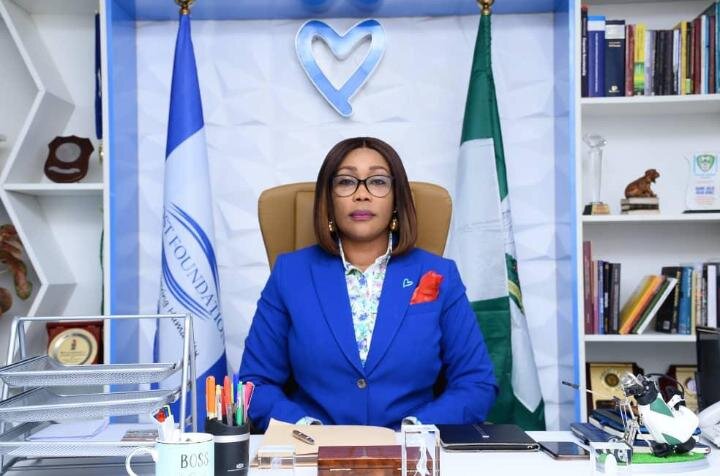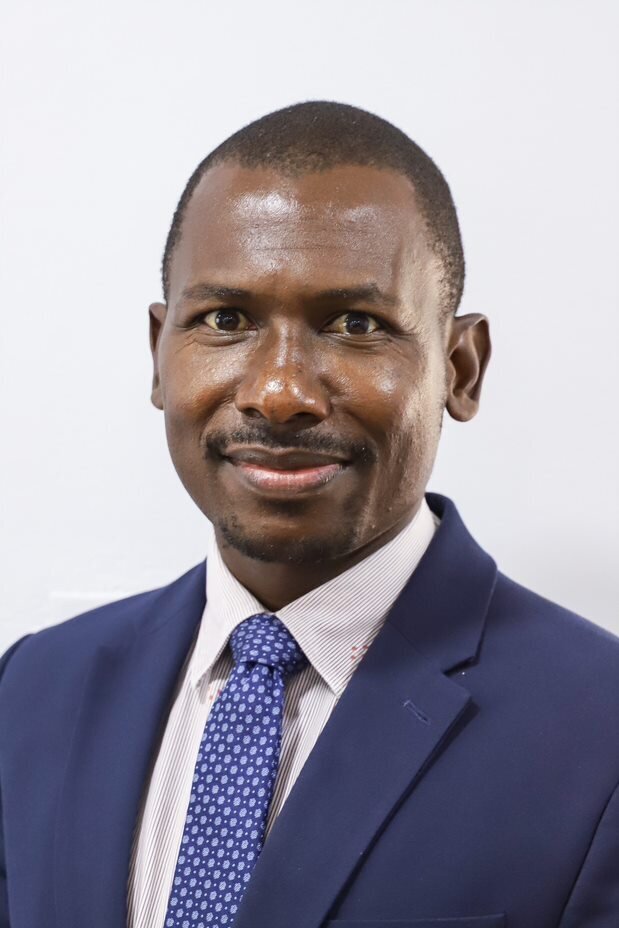Dame Julie Okah-Donli is a former Director General of the National Agency for the Prohibition of Trafficking in Persons (NAPTIP). She is the Chair, Board of Trustees of the United Nations Voluntary Trust Fund for Victims of Trafficking (UNVTF). In addition, she is the Founder of the Roost Foundation.
This interview between the Initiative for Inclusive Dialogue in Nigeria (IIDN) and Dame Julie Okah-Donli focuses on the issue of human trafficking of Nigerians, the kinds of support that victims need and some preventive measures:
Who is Dame Julie Okah-Donli?
I am a mother, lawyer, author, human rights activist, philanthropist, gender equality crusader, current chairperson, Board of Trustees, United Nations Voluntary Trust Fund for Victims of Human Trafficking and the Executive Chairman of Roost Foundation.
As a teenager, I read many books that piqued my interest on the issues of gender discrimination and social vices in the society. This fueled my active participation in literary clubs and associations that aligned with my vision of contributing my quota to the development of the society and subsequently, paving the way for girls and women to reach out for the sky which is where we all belong.
What does your role as Chair, Board of Trustees of the United Nations Voluntary Trust Fund for Victims of Trafficking entail?
The Voluntary Trust Fund is meant to provide humanitarian support, direct assistance, essential services and business empowerment for victims of trafficking in persons worldwide. Basically, my role as Board Chair is to initiate strategies that will increase the Trust Fund and ensure that the Fund is evenly distributed to victims in dire need of it and also to monitor and ensure proper utilization of the funds by the beneficiary non-governmental organizations and initiate strategies that will improve the lives of victims. The UNVTF offers me a global platform to fulfil my passion of providing legal, humanitarian and financial support to victims of human trafficking.
Based on your years of experience in the anti-trafficking sector, kindly share some statistics on the rates of trafficking of Nigerian citizens.
Because of the culture of silence, statistics on human trafficking, sexual and gender based violence is not completely accurate. I mentioned sexual and gender based violence because this is a vital component of human trafficking. As at 2020, we had 8, 027 reported cases of human trafficking, 423 convictions and over 15, 000 rescued victims, 404 reported cases of sexual and gender based violence and 29 convictions.
What gender is the most common target of traffickers?
Every gender is a target of human traffickers especially with the increase in sports trafficking and organ harvesting. However, statistics have shown that women and girls are more vulnerable to human trafficking.
What age group is the most common target of traffickers?
Every one irrespective of age can be trafficked for domestic and/or sexual exploitation. Children and adults are trafficked for domestic purposes, organ harvesting or totally sold as slaves. The rate of trafficking among aged people may not be too high but that does not mean they also do not get trafficked.
How can trafficking be reduced and prevented?
Preventing and tackling human trafficking requires a holistic approach and this means that we must start by addressing the root causes of the problem before moving to other aspects of the menace. The root causes of human trafficking include ignorance, greed, poverty, illiteracy, etc. There is the need for massive and sustainable awareness campaigns to address ignorance on the part of victims who think that leaving their countries automatically guarantees success. Also, more jobs and free/subsidized skill acquisition centers should be created so that the number of idle and vulnerable people in the country will be reduced. There should also be subsidized education opportunities. Traffickers and anyone guilty of child abuse should be legally prosecuted. To win this war, all hands must be on deck, therefore, there is the need for synergy between NAPTIP, law enforcement agencies and non-governmental organisations involved in tackling the scourge of human trafficking.
How does the Foundation ensure the effectiveness of its programmes that are aimed at supporting victims of gender-based violence?
Having performed excellently well as the Director General of NAPTIP and in my current capacity as the Chairperson of the UNVTF, ensuring effectiveness of programmes is a familiar terrain for me. Also, at Roost Foundation, we have a team of professional, seasoned, dedicated and highly experienced members of the Board of Trustees members drawn from different fields who leave no stone unturned in ensuring that our programmes are not just effective but also impactful and sustainable.
We have a monitoring policy and dedicated team members who verify the authenticity of victims and also go an extra mile to ensure that whatever support they get, be it legal, medical, humanitarian, skill acquisition etc. is properly utilized. We shall also monitor the progress of victims who receive business startup capital, as well as, offer periodic entrepreneurship trainings to enable them perform better at their businesses.
How can people contact the Roost Foundation?
You can call us on +2349070343838 or +2348037830683.
You can also send a mail to info@roostfoundation.org or roostfoundation@gmail.com.
Follow us on all social media platforms by clicking on the following links:
Youtube: https://www.youtube.com/channel/UC5Pb44DqIZR_aCXXK9deLzQ
Instagram: https://www.instagram.com/roostfoundation/
Twitter: https://twitter.com/RoostFoundation
Facebook: https://www.facebook.com/roostfoundation
For more information, visit our website at www.roostfoundation.org
About the Initiative for Inclusive Dialogue in Nigeria (IIDN)
IIDN is a registered, non-governmental organization. We promote social cohesion and sustainable development in Nigeria, through our educational, capacity-building and awareness-raising efforts. Our vision is to foster a nation where all Nigerians are committed to mutual respect, equity and the sustainable use of our nation’s many resources. Learn more: http://www.iidnigeria.org




